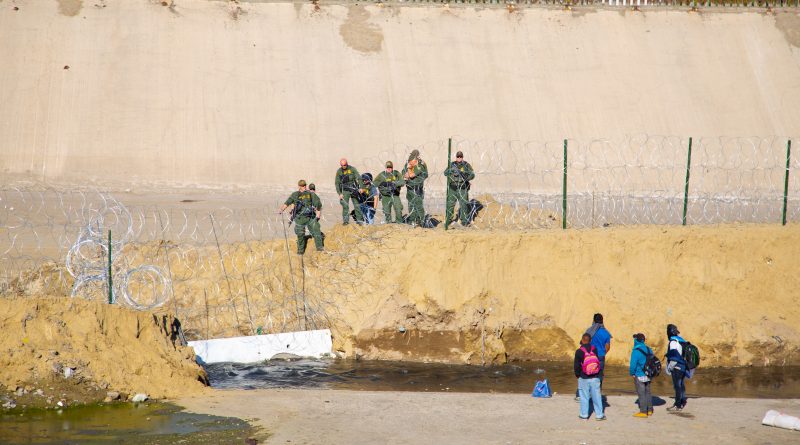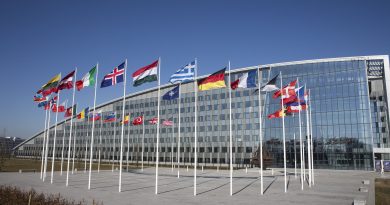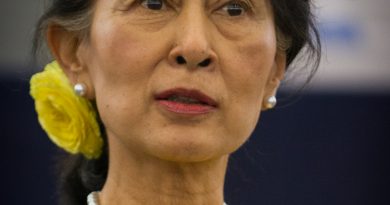Focus on Mass Migration: Honduras
Andrea Hebel
Staff Writer
Amidst a growing trend of increasing migration out of Honduras, a caravan of more than 2,000 Honduran migrants unsuccessfully attempted to move through Central America towards the United States before being stopped in Guatemala, reports The Wall Street Journal.
Members of the caravan were fleeing a country plagued by corruption, crime, and extreme poverty made worse by lack of work due to COVID-19, reports Al Jazeera. The Los Angeles Times says that curfew violations brought on by the country’s coronavirus lockdowns have led to the arrests of more than 63,000 individuals, including activists and journalists. Human rights advocates have called the strict measures a “military crackdown” by government officials.
This crisis of Honduran migration is not new. Migrant caravans are becoming increasingly common across Central America, with Honduran caravans appearing in 2018, 2019, and early 2020, reports The New York Times. These caravans pose significant challenges to governments across the region, and U.S. President Donald Trump has called on Guatemala, Honduras, Mexico, and El Salvador to tighten their immigration policies to prevent migrants from making it to the U.S. border.
Migrants who do make it to the U.S. often face significant challenges in gaining legal status in the country. President Trump has placed increasingly strict limits on immigration, especially for those seeking asylum or refugee status. Forbes reports that the Trump administration’s 2020 cap on refugees is 18,000, down 84 percent from the 110,000 allowed in the final year of the Obama administration.
The administration has also rolled out a series of policies attempting to dissuade individuals – specifically Central Americans – from claiming asylum. Based on an agreement negotiated with Honduras in September 2019, the U.S. is pushing to send asylum seekers back to Honduras to seek asylum there instead. Similar policies are already in place with Guatemala, decreasing the likelihood of an individual successfully gaining asylum in the U.S.
The journey that many Hondurans take to get to the U.S. is grueling. Migrant caravans, often consisting largely of women and children, make the several thousand-mile journeys mostly on foot, reports The Guardian. They face injury, illness, starvation, and extreme danger on the journey. Families often face separation in the rush of people, with parents sometimes binding themselves to their children to stay together.
Despite the uncertainty, however, many Hondurans see the risk as worth it for the potential for a better life. Many see no choice but to leave and escape the high rates of violent crime and gang violence. In their 2020 Freedom in the World report, Freedom House reported that Honduras had a homicide rate of 3,996 in 2019. Parents often send their children out of the country to avoid gang recruitment, and those who are unsuccessful in fleeing are sometimes targeted and killed by gangs.
Corruption amongst government officials is also rampant. In August 2019, Honduran President Juan Orlando Hernandez was directly implicated, along with former President Porfirio Lobo, as a co-conspirator in a drug-smuggling operation run by the former’s brother. Significant corruption also plagues the country’s police force, with many officers having engaged in criminal activity including drug trafficking and extortion. This has led the government to increasingly utilize the armed forces to combat crime, leading to an increase in arbitrary arrests and detentions.
Extreme poverty also often gives individuals little choice but to leave. The World Bank reports Honduras’s poverty rate as 48.3 percent, with a significantly higher rate of 60.1 percent in rural areas. The country’s inequality rating places it among the highest in the world. Impacts from the coronavirus have exacerbated these ratings, with the country’s GDP being expected to fall 7.1 percent in 2020. This has led to increased unemployment rates, creating a dire situation for many.
In addition, members of the LGBT+ community in Honduras face a significant risk of violence and discrimination from gang members, law enforcement officials, and even members of their own families, according to a report by Human Rights Watch. There is little documentation of government enforcement of anti-discrimination policies. Many LGBT people say that family discrimination leads to severe economic marginalization, increasing the risk of violence.
This presents a difficult choice for many Hondurans – leave to pursue a better life, risking completing a tumultuous journey only to be turned away at the border, or stay, risking extreme poverty and violence. For many, the risk of leaving is worth taking to find a better life elsewhere.



